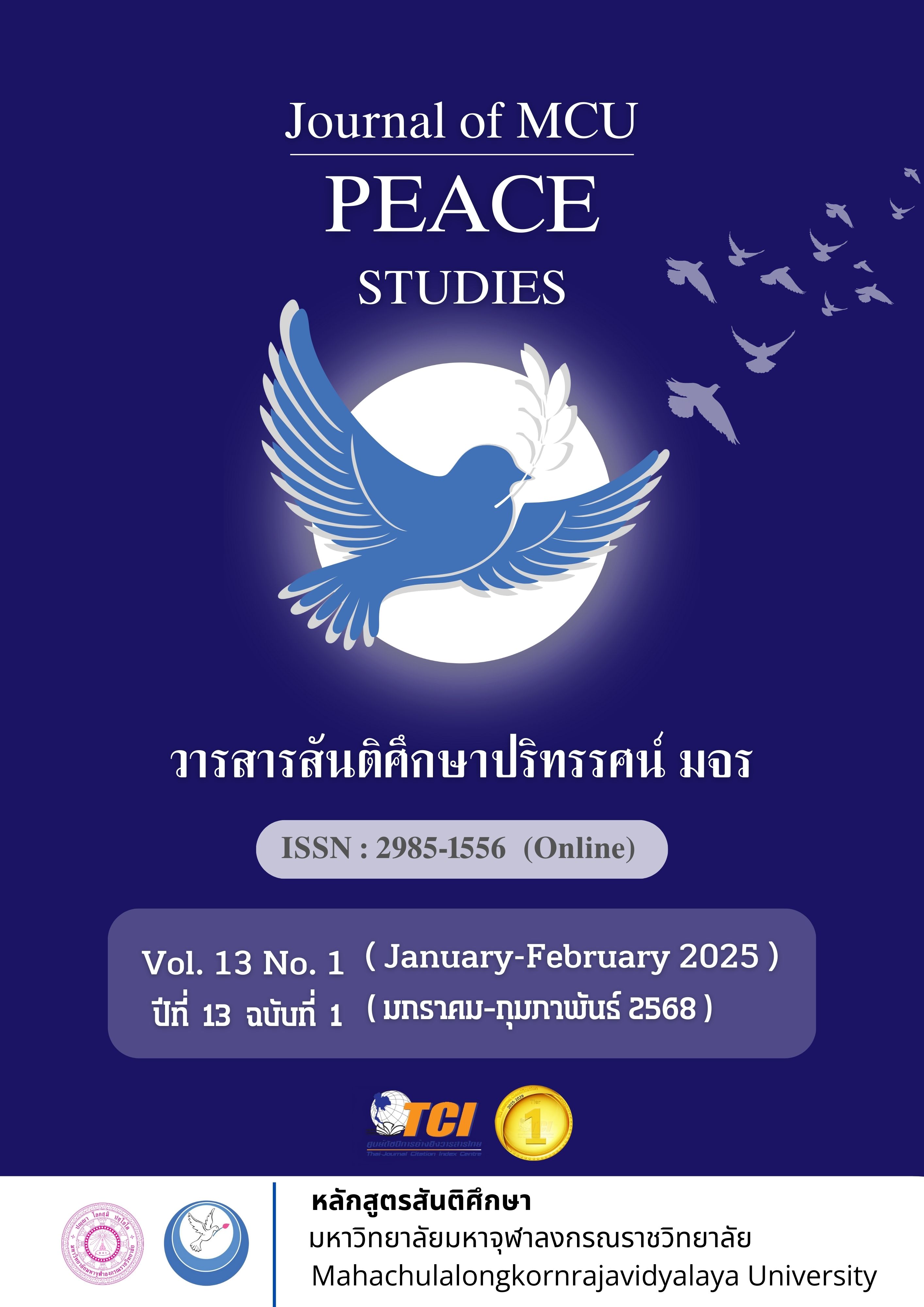The Development of an Enrichment Curriculum Based on Problem-Based Learning for Numbers and Algebra, Mathematics for First-Year Secondary School Students
Main Article Content
Abstract
The study aimed at the following objectives: 1) to gather basic information for developing an enrichment curriculum based on problem-based learning for numbers and algebra in the mathematics subject for first-year secondary school students; 2) to design and evaluate the quality of the enrichment curriculum; and 3) to implement and assess the outcomes of using the problem-based learning curriculum for numbers and algebra in the mathematics subject with first-year secondary school students. The sample for Phase 1 of the study included two groups: 40 teachers and 400 secondary school students (from first to third year) from the Dechana Udom Cluster, under the Secondary Education Service Area Office of Ubon Ratchathani and Amnat Charoen. The sample for the trial of the enrichment curriculum consisted of 35 first-year students from Nakhra Saeng School during the 2023 academic year. The data collection tools included a background information questionnaire, a problem-solving skills assessment, a desired behavior assessment, a learning achievement test, and an attitude survey. The statistical methods for data analysis included frequency, percentage, mean, standard deviation, content validity index, item difficulty and discrimination, test reliability, and t-tests.
The research findings revealed that: 1) Teachers' opinions on the problem-based learning approach were at a moderate level ( = 2.77, S.D. = 1.03), and students' opinions were similarly moderate (
= 2.80, S.D. = 1.32). 2) The developed enrichment curriculum included principles, objectives, structure, and procedures designed to enhance students' knowledge, problem-solving skills, and desirable traits that foster the problem-based learning process. The curriculum was found to be of propriety at a high level (
= 4.57, S.D. = 0.10). 3) After using the enrichment curriculum, students achieved an average score of 34.09 points (85.21%), surpassing the set criteria. Students demonstrated problem-solving skills at a high level (
= 4.24, S.D. = 0.08), desirable behavior at a high level (
= 4.21, S.D. = 0.07), and attitudes toward problem-based learning at the highest level (
= 4.61, S.D. = 0.11). The curriculum was revised to ensure alignment between the principles, objectives, content structure, and procedures.
Article Details

This work is licensed under a Creative Commons Attribution-NonCommercial-NoDerivatives 4.0 International License.
Views and opinions expressed in the articles published by The Journal of MCU Peace Studies, are of responsibility by such authors but not the editors and do not necessarily reflect those of the editors.
References
Chankhao, S. (2015). Development of Health Education and Physical Education Curriculum for Novices at the Lower Secondary Level in Phrapariyattham School. (Doctoral Dissertation). Chulalongkorn University. Bangkok.
Chuchuy, C. (2020). The Development of a Mathematics Process Skills Test for Prathom Suksa 2 Students by Application of Generalizability Theory. (Master’s Thesis). Naresuan University. Phitsanulok.
Demaisip Hortillosa, A. (2013). Context-Based Mathematics Problem Solving: Cognitive and Affective Effects on BIT and BS VOC-Tech Students. IAMURE International Journal of Education, 5(1), 1-1.
Ekakul, T. (2009). Operations Research, Printed No. 2. Ubon Ratchathani: Yongsawat Inter Group Co., Ltd.
Koomsiri, P. (2018). Relationship between Public Stigma, Attitudes and Social Supports in Children with Attention Deficit Hyperactivity Disorder (ADHD). (Master’s Thesis). Chulalongkorn University. Bangkok.
Lertpattanakitkul, A. (2011). A Study of Internet Usage Behavior of the Students under the Office of the Basic Educational Commission in Bangkok Educational Service Area 1. (Master’s Thesis). University Srinakharinwirot. Bangkok.
Paiwittayasiritham, C. (2007). A Development of the Curriculum Evaluation Model: An Application of a Meta-Evaluation. (Doctoral Dissertation). Srinakharinwirot University. Bangkok.
Phanich, W. (2012). Ways of Creating Learning for Students in the 21st Century. Bangkok: Sodsri Foundation.
Phusara, R. (2003). Curriculum Development in Line with Educational Reform. Bangkok: Book Point.
Promket, C. (2013). Report on the Results of the Development of Problem-Based Learning Activities, Subject Groups, Science Learning About Life and the Environment of Mathayom 3 Students at Thesaban Wat School Sa Thong, Secondary Educational Service Area Office 27. (Research Report). Maha Sarakham: Maha Sarakham Rajabhat University.
Santiwong, T. (1994). Organization and Administration. (9th ed.). Bangkok: Thai Phatthana Panich.
Saylor, J. G., & Alexander, W. M. (1974). Planning Curriculum for School. New York: Holt Rinehart and Winston, Inc.
Taba, H. (1962). Curriculum Development: Theory and Practice. New York: Harcourt, Brace & World, Inc.
Wither, S. E. (2000). Local Curriculum Development and Place-Based Education. (Doctoral Dissertation). University of Denver. Colorado, U.S.A.


